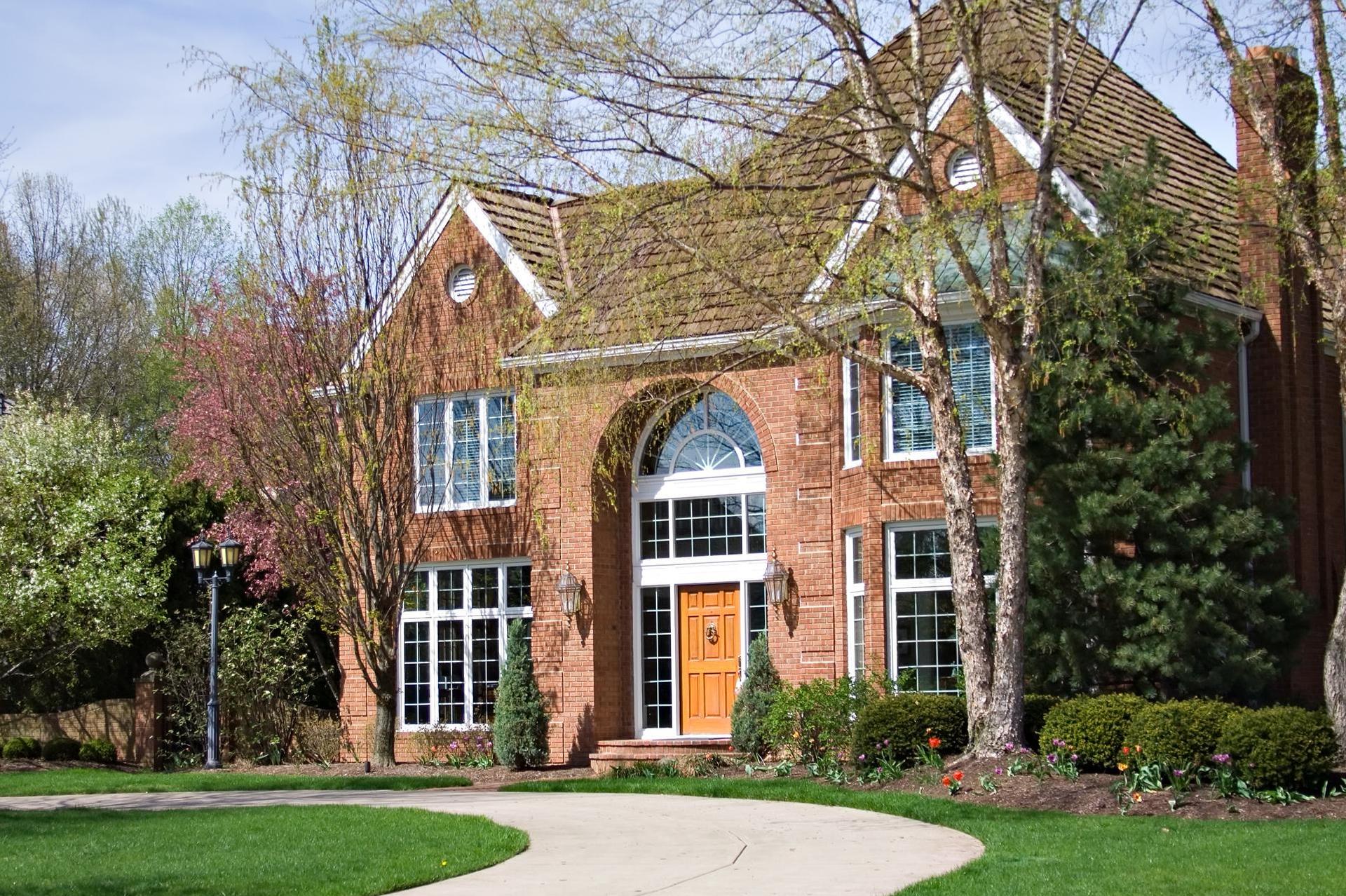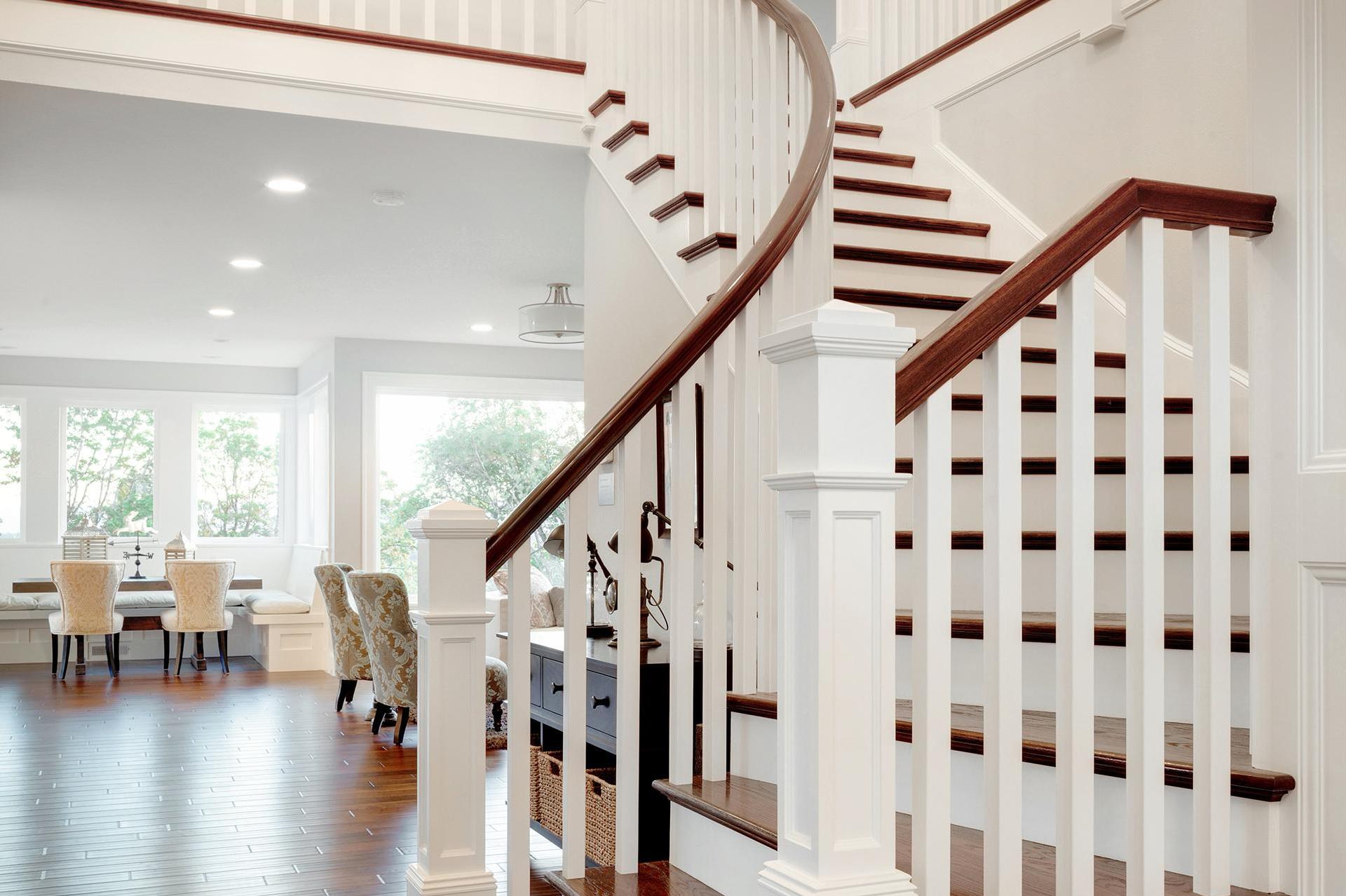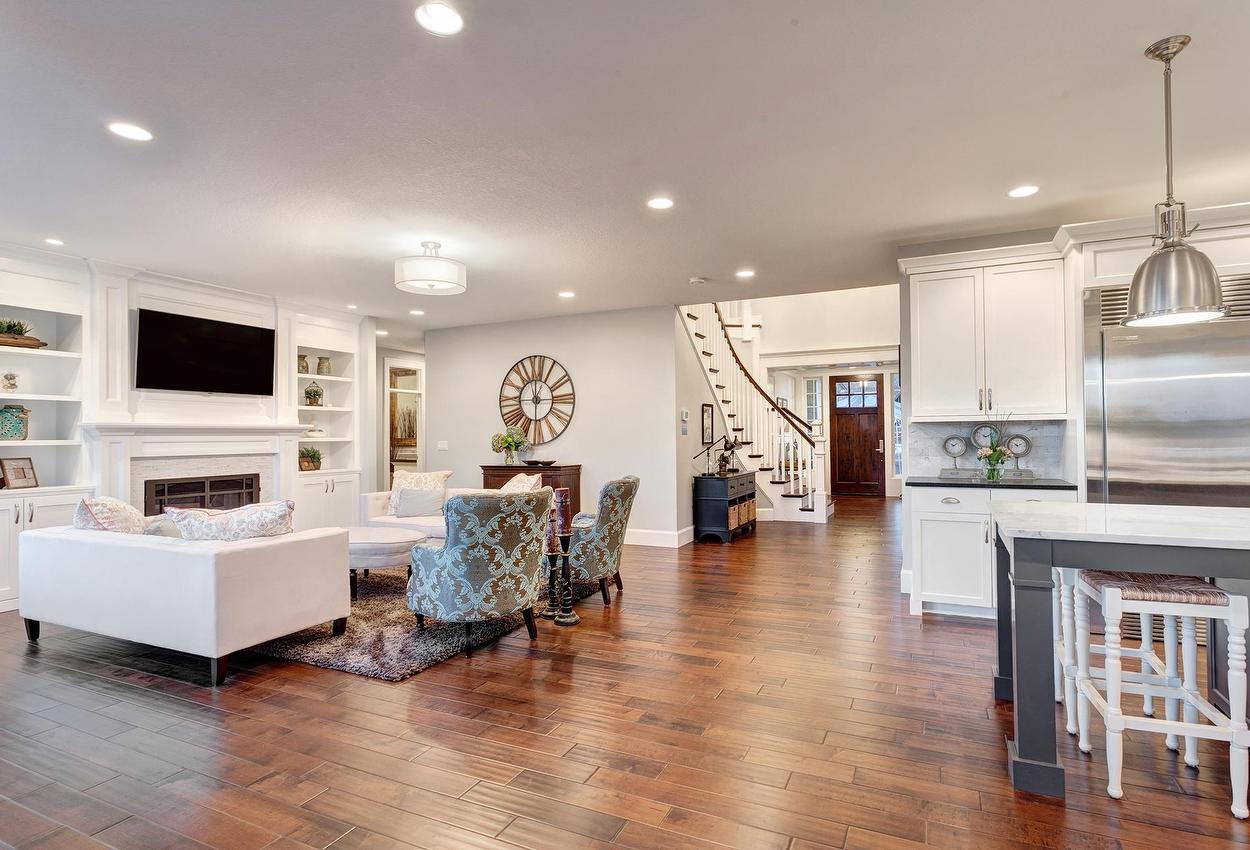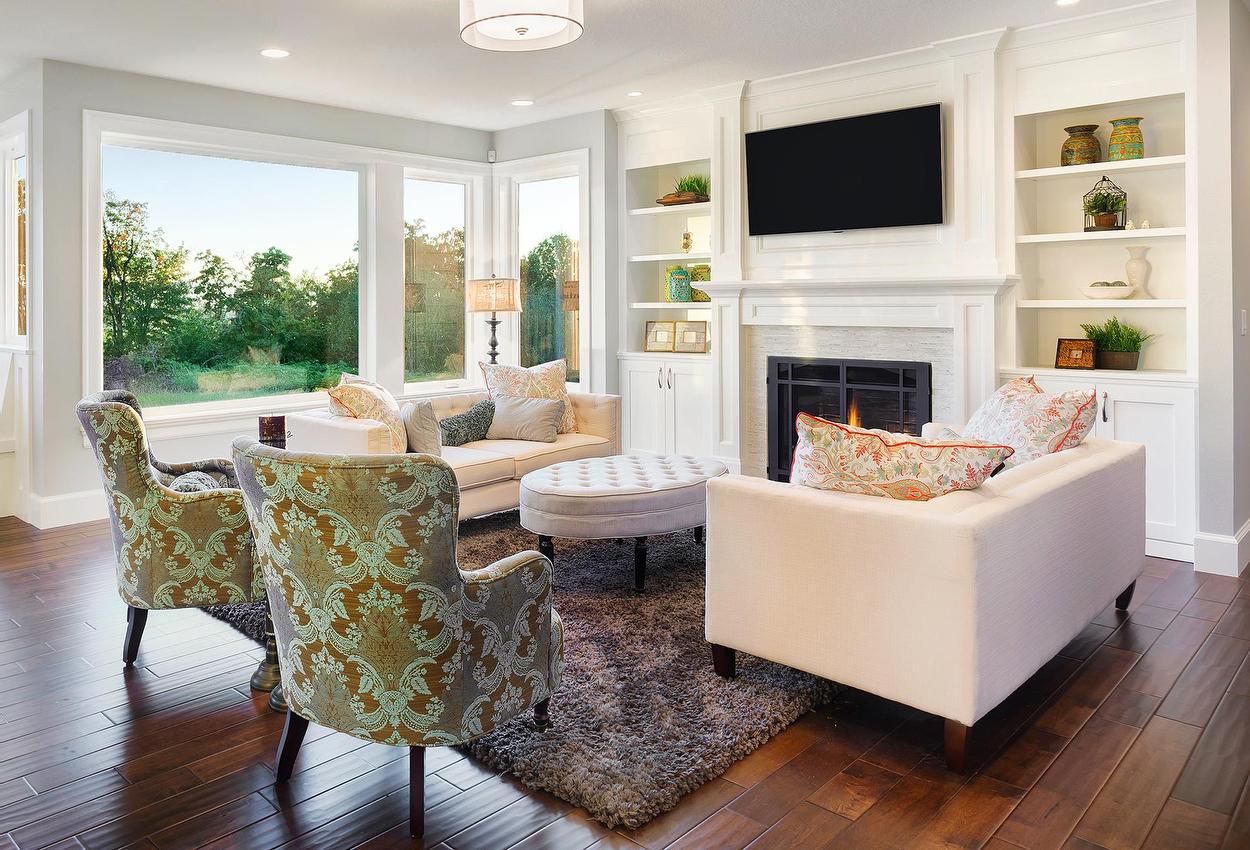Helping You Buy And Sell Real Estate In Milton Ontario And Surrounding Areas For Over 35 Years!





For Buyers in Milton
Finding the right agent
You want to find the right home, in the right location, at the right price - and you want to do it quickly, with minimum hassle. The best way to do that is to work with a professional realtor who understands your wants and needs, your time frame and your financial boundaries.
Why work with a Local Milton agent?
Choose an agent who understands your needs
Here are a few questions to ask to help you determine if an agent is right for you:
You want to find the right home, in the right location, at the right price - and you want to do it quickly, with minimum hassle. The best way to do that is to work with a professional realtor who understands your wants and needs, your time frame and your financial boundaries.
Why work with a Local Milton agent?
- You’ll save time. An agent can pinpoint homes that fit your needs and dismiss those that don’t.
- You benefit from an experienced negotiator. Your agent will manage your offers and counter-offers, ensuring that you get the best possible price for your home.
- You’ll get the right information. Your agent knows the neighbourhood and can give you accurate information on local real estate values, taxes, utility costs, services and amenities.
- You can always count on great advice. Because your agent is familiar with the entire home purchasing process, he or she can advise you of your legal and financial options, and recommend appraisal, home inspection and contracting services.
Choose an agent who understands your needs
Here are a few questions to ask to help you determine if an agent is right for you:
- Will you be representing my interests?
- Do you have access to MLS information?
- Will you provide market evidence to support the price?
- Will you look after closing and possession details?
- Can you be contacted at any time?
Working with an agent
Let your real estate agent do the searching for you. The best buys aren’t in the newspaper ads; most great opportunities are on "hot sheets" that are available every morning to salespeople with access to MLS information.
An agent’s job is to:
As a homebuyer, you must work with your agent to find the home that’s right for you. Communication is key - tell your agent what you want, and be specific.
Let your real estate agent do the searching for you. The best buys aren’t in the newspaper ads; most great opportunities are on "hot sheets" that are available every morning to salespeople with access to MLS information.
An agent’s job is to:
- Provide information on the property and the area
- Negotiate a price and terms that are agreeable to both buyer and seller
- Help arrange a source of financing
As a homebuyer, you must work with your agent to find the home that’s right for you. Communication is key - tell your agent what you want, and be specific.
- Offer a detailed description of your property needs and wants. If you will absolutely not consider a house without a hardwood floor, say so. And if air conditioning is a "nice to have" rather than a "must have," communicate that, too.
- Be specific about where you want to live. If you refuse to live outside a certain area, it might take longer to find you a home, but your agent will know not to waste your time with anything not in your chosen neighbourhood.
- Tell your agent what you can afford. He or she can help you get a pre-approved mortgage so you know for sure what your price range will be.
- Communicate your likes and dislikes for each property you see. It will help your agent narrow down the possibilities.
- Commit to one salesperson.
- Respect and perform the terms of the purchase agreement.
- Keep an open mind. Agents know about those charming little areas that you’ve never even heard of. You might find your dream home in a completely unexpected place.
Protect yourself with a home inspection
That gorgeous house on the corner lot may look great, but it could be hiding all sorts of expensive, annoying problems, from a leaky roof to faulty wiring to a mouldy basement.
Make sure your home is solid and secure inside and out before you buy it. A home inspector will determine structural and mechanical soundness, identify problem areas, provide cost estimates for any work required, and generate a report. It’s a great way to avoid headaches and costly problems that can turn a dream home into a money pit.
If you decide to go ahead and buy a home with issues that have been flagged by your inspector, you can base your offer on how much potential repairs and upgrades may cost.
Home inspection costs range according to size, age and location of the home. Your Royal LePage sales representative can recommend a reputable home inspection service or arrange for an inspector to visit your property.
That gorgeous house on the corner lot may look great, but it could be hiding all sorts of expensive, annoying problems, from a leaky roof to faulty wiring to a mouldy basement.
Make sure your home is solid and secure inside and out before you buy it. A home inspector will determine structural and mechanical soundness, identify problem areas, provide cost estimates for any work required, and generate a report. It’s a great way to avoid headaches and costly problems that can turn a dream home into a money pit.
If you decide to go ahead and buy a home with issues that have been flagged by your inspector, you can base your offer on how much potential repairs and upgrades may cost.
Home inspection costs range according to size, age and location of the home. Your Royal LePage sales representative can recommend a reputable home inspection service or arrange for an inspector to visit your property.
8 things to look for when you buy
When you fall in love with a home, the things you like about it can blind you to its problems. Next time you go to an open house or tour a property with an agent, keep your eyes open with these top tips:
1. Take a look at general upkeep. Is it clean? Are lawns left uncut? Do walls need paint? If the small stuff hasn’t been taken care of, there’s a good chance that bigger issues have been ignored as well.
2. Test it. Try out lights, faucets, toilets, air conditioning and major appliances.
3. Check for water damage. Look at ceilings and drywall for stains and bulges. Water that works its way in through a leaky roof or a cracked foundation can rot wood, create mildew and destroy possessions.
4. Watch for "spongy" floors. Take note of soft, springy sections, squeaky or uneven areas - these can be a sign that costly floor repairs are needed.
5. Check doors and windows. Make sure they fit snugly in their jambs and operate smoothly. Feel for drafts. Look for flaked paint and loose caulking - if wood isn’t protected from moisture, it will rot.
6. Look at the foundation. If you see deep cracks or loose mortar and bricks, there may be a significant structural problem. Soggy areas near the foundation are also a warning sign.
7. Make sure there’s enough storage space. If you are moving from a home with large closets and a shed, make sure your new house is able to store an equivalent amount of belongings.
8. Measure. Make sure your furniture will fit into your new house.
These tips are for your own first (or second) look at a home. For true peace of mind, you should always hire a certified home inspector before you buy.
When you fall in love with a home, the things you like about it can blind you to its problems. Next time you go to an open house or tour a property with an agent, keep your eyes open with these top tips:
1. Take a look at general upkeep. Is it clean? Are lawns left uncut? Do walls need paint? If the small stuff hasn’t been taken care of, there’s a good chance that bigger issues have been ignored as well.
2. Test it. Try out lights, faucets, toilets, air conditioning and major appliances.
3. Check for water damage. Look at ceilings and drywall for stains and bulges. Water that works its way in through a leaky roof or a cracked foundation can rot wood, create mildew and destroy possessions.
4. Watch for "spongy" floors. Take note of soft, springy sections, squeaky or uneven areas - these can be a sign that costly floor repairs are needed.
5. Check doors and windows. Make sure they fit snugly in their jambs and operate smoothly. Feel for drafts. Look for flaked paint and loose caulking - if wood isn’t protected from moisture, it will rot.
6. Look at the foundation. If you see deep cracks or loose mortar and bricks, there may be a significant structural problem. Soggy areas near the foundation are also a warning sign.
7. Make sure there’s enough storage space. If you are moving from a home with large closets and a shed, make sure your new house is able to store an equivalent amount of belongings.
8. Measure. Make sure your furniture will fit into your new house.
These tips are for your own first (or second) look at a home. For true peace of mind, you should always hire a certified home inspector before you buy.
Determine what you can afford
Buying a home involves both one-time costs and more regular monthly expenses. It’s important that you take both into account when you’re figuring out how much you can spend on a home.
The largest one-time cost is the down payment, which usually represents upto 25% of the total price of the property. Then, in addition to the actual purchase price, there are a number of other expenses that you may be expected to pay for.
Typical One-Time Expenses
Other costs may include landscaping, decorating, furnishings, appliances and repairs. Typical monthly costs include mortgage payments, maintenance, insurance, condo fees, property taxes and utilities.
Buying a home involves both one-time costs and more regular monthly expenses. It’s important that you take both into account when you’re figuring out how much you can spend on a home.
The largest one-time cost is the down payment, which usually represents upto 25% of the total price of the property. Then, in addition to the actual purchase price, there are a number of other expenses that you may be expected to pay for.
Typical One-Time Expenses
- Mortgage application and appraisal fee (paid at time of application)
- Appraisal fee (paid at inspection)
- Property inspection (optional) (paid at closing)
- Legal fees (paid at closing)
- Legal disbursements (paid at closing)
- Deed and/or mortgage registration (paid at closing)
- Property survey (sometimes provided by seller) (paid at closing)
- Land Transfer, Deed Tax or PropertyPurchase Tax (in Quebec within3 months following signing) (paid at closing)
- Mortgage interest adjustment andtake over fee (if applicable) (paid at closing)
- Adjustments for fuel, taxes, etc. (paid at closing)
- Mortgage insurance (and application fee if applicable) (paid at closing)
- Home and property insurance (paid at closing and on-going)
- Connection charges for utilities such as gas, water and electricity (paid on date of move)
- Moving expenses (paid on date of move)
Other costs may include landscaping, decorating, furnishings, appliances and repairs. Typical monthly costs include mortgage payments, maintenance, insurance, condo fees, property taxes and utilities.
Understanding market conditions
The real estate market is always changing, and it helps to understand how market conditions can affect your position as a buyer. Your agent can provide you with info on current conditions and explain their impact on you.
Buyers’ market
The supply of homes on the market exceeds demand.
Characteristics
Implications
Sellers’ market
The number of buyers wanting homes exceeds the supply of homes on the market.
Characteristics
Implications
Balanced market
The number of homes on the market is equal to the number of buyers.
Characteristics
Implications
The real estate market is always changing, and it helps to understand how market conditions can affect your position as a buyer. Your agent can provide you with info on current conditions and explain their impact on you.
Buyers’ market
The supply of homes on the market exceeds demand.
Characteristics
- High inventory of homes
- Few buyers compared to availability
- Homes on the market longer
- Prices tend to drop
Implications
- More time to look for a home
- More negotiating leverage
Sellers’ market
The number of buyers wanting homes exceeds the supply of homes on the market.
Characteristics
- Smaller inventory of homes
- Many buyers
- Homes sell quickly
- Prices usually increase
Implications
- May have to pay more
- Must make decisions quickly
- Conditional offers may be rejected
Balanced market
The number of homes on the market is equal to the number of buyers.
Characteristics
- Sellers accept reasonable offers
- Homes sell within an acceptable time period
- Prices generally stable
Implications
- More relaxed atmosphere
- Reasonable number of homes to choose from
Selling Milton real estate is our passion!


